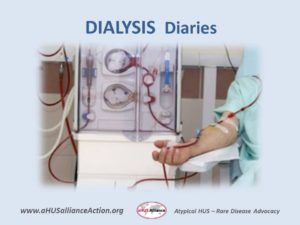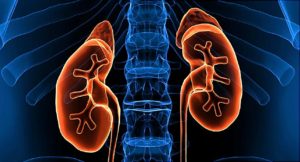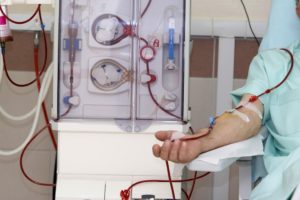
Atypical HUS affects about 2-3 per million population according to some estimates. Eculizumab, sold under the brand name Soliris by Alexion Pharmaceuticals is the only drug currently approved by the FDA for the treatment of Atypical HUS. It is the only drug proven to work in preventing damage to the kidneys and other organs when the disease strikes. Eculizumab has also been proven to work when someone whose kidneys have already failed due to an earlier aHUS episode possibly because of late diagnosis or due to the drug not being available.
About 75% of the countries in the world do not have access to Eculizumab.
There are some types of aHUS which respond to other therapies such as Plasmapheresis, Rituximab and so on. But this accounts for a minuscule part of the total number of patients. Even in such cases, the risk of a relapse is always there.
In most of the world, where there is no drug available to treat aHUS during initial onset or after a kidney transplant, aHUS patients are mostly condemned to a life on dialysis. These patients have to contend with being on dialysis forever. Long years of living with an artificial means of clearing out the excess fluid and toxins from the blood takes its toll. Dialysis can never replace the entire function of the kidneys. Due to this treatment, best thought of as a compromise, only some functions of the kidney are replaced and that too only to a certain extent.

The kidneys are amazing organs that do a host of different things. The most important function is to rid the body of excess fluid and toxins. In addition, they perform certain other functions as well. They produce a hormone called erythropoietin which stimulates the bone marrow to produce Red Blood Corpuscles. The kidneys also produce Calcitriol which helps the body absorb Calcium from the gut from the food we eat. Calcitriol plays a very important role in maintaining the balance of Calcium in the body which is a very important mineral for proper functioning of the bones, muscles and nerves. Renin, another hormone produced by the kidneys is involved in the regulation of blood pressure in the human body.
When the kidneys do not function, fluid and toxins start building up in the body. Apart from this, due to the reduction or cessation of production of these three important compounds, the functions they are involved in get impacted as well. Anemia (reduction in Hemoglobin) is triggered in the absence of Erythropoietin. Mineral and Bone Disorders occur due to deficiencies in Calcitriol. Blood Pressure irregularities are common in the absence of Renin.
There are several other conditions that those who’ve been on dialysis for several years have to deal with. The following are the most common:
- Left Ventricular Hypertrophy – enlargement of a valve in the heart. Other heart conditions are also common
- Peripheral Neuropathy – Numbness, loss of sensation, pain in the hands and feet
- Sexual Dysfunction – Loss of interest and ability in sex
- Pruritus – Itching of the skin
- Thinning of the skin
- Carpal Tunnel Syndrome
To minimise the impact of these conditions, it is important for those on long term dialysis to get optimal, good quality dialysis. For example, hemodialysis patients should talk to their physicians about the possibility of extended hour, more frequent dialysis (like Daily Nocturnal Hemodialysis). Those on Peritoneal Dialysis should adhere to their dialysis prescription and never skimp on exchanges. They must also ensure that dwell times are set optimally (something that a PET test will indicate).
Despite all this, life expectancy on dialysis is usually significantly lower than in the population with healthy kidneys.

Over the next few posts, the aHUS Alliance will cover some of the problems faced by those on long term dialysis. This is a population that must not be forgotten. After all, it constitutes more than 75% of the world today in terms of countries. Several hundred patients die every year due to this disease. These names never make newspaper headlines. The inequity in access to drugs such as Eculizumab is a grim reality of today’s times – a reality that needs to be addressed.
This article is the first in the 4 part aHUS Alliance series, The Dialysis Diaries.
Author Kamal D Shah has been on dialysis for the last 22 years. He is founder of Atypical HUS India, and co-founder of NephroPlus Dialysis Centres, India’s largest Dialysis Centre Network. He is one of the directors of aHUS Alliance Global Action, whose most recent collaboration includes the KDIGO publication on Increasing Access to Integrated ESKD Care.
Click HERE to read the aHUS Alliance interview with Kamal D Shah.
Click HERE to read his blog.

